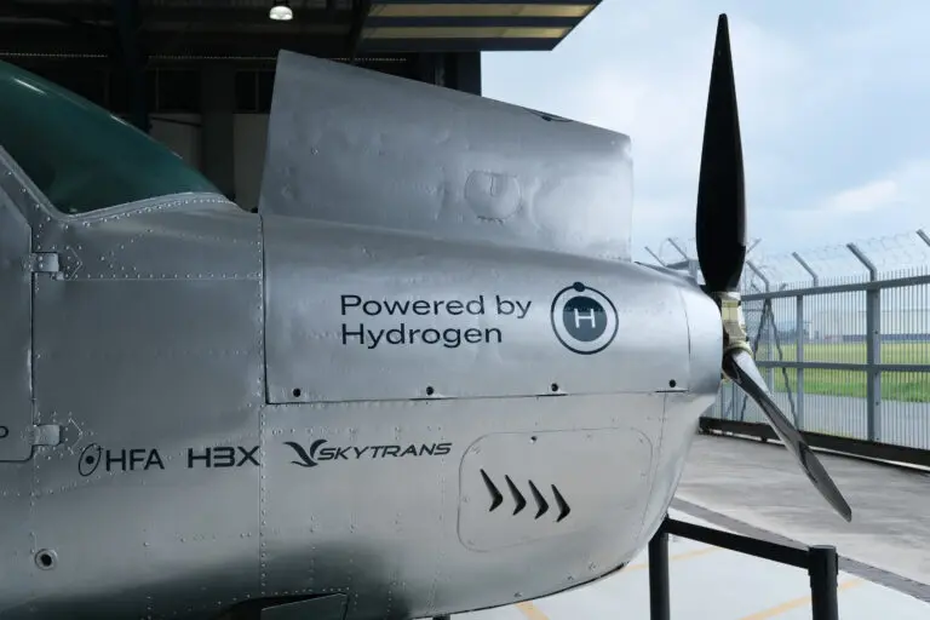
Flying is a carbon-intensive mode of transport. Yet no practical and scalable, truly emission-free options exist to decarbonise by 2050 (IATA Net Zero). Clean hydrogen has the potential to contribute significantly to the decarbonisation of aviation. Stralis was founded on a singular idea: to be the world’s leading emission-free aircraft company, producing high-performance, low-operating-cost hydrogen-electric propulsion systems and aircraft. The team is now one step closer to making this a reality.
Bob Criner, CEO and Co-founder of Stralis Aircraft says, “This is a huge win for Stralis. We have safely trialled the introduction of hydrogen in a controlled environment at Brisbane Airport for use in aircraft propulsion, which required strong collaboration and upskilling of everyone involved. This lays the foundation and builds momentum as we work towards Australia’s first hydrogen-electric flight next year.”
This progress has been achieved with grant support from the Emerging Aviation Technology Partnerships Program – an Australian Government initiative.
Alan Milne, CEO of Skytrans Airlines, the launch customer for Stralis Aircraft said, “Skytrans would like to congratulate Stralis Aircraft on this momentous occasion. This is a very strong message to the industry that Stralis is on the right track and progressing at a great rate of knots towards emission-free aviation. Skytrans is proud to support Stralis and looks forward to a long commercial relationship.”
The propulsion system used for this test was designed and built by the Stralis team as an initial prototype that will continue to be tested and upgraded to a flight-worthy system. Another key achievement has been the hydrogen safety processes and compliance approvals developed and met during testing. It has been a true team effort, working closely with a wide range of partners, particularly Brisbane Airport, Aviation Australia, and the broader Hydrogen Flight Alliance partnership.
Transport is vital for promoting connectivity, trade, economic growth and employment, yet it is also a significant source of greenhouse gas emissions. For both international and domestic flights, Australia has one of the highest per capita CO₂-e emissions due to the geographic isolation (meaning Australians fly longer on average) and high propensity to travel. Resolving this trade-off is essential to achieving sustainable transport. Hydrogen produced by renewables is a fundamentally clean, carbon-free, lightweight, and economical energy solution. Based on practical experience with alternatives, Stralis concludes that hydrogen-electric propulsion is the most commercially viable and truly sustainable technology that will deliver cleaner, cheaper and quieter aircraft.
Stralis Aircraft’s hydrogen-electric propulsion system doesn’t just save on emissions but is also a low-cost option, with anticipated overall operating cost savings of 50% compared to JetA, saved mainly on engine maintenance and fuel.
Glenn Ryan, CEO of Aviation Australia, said, “Congratulations to Stralis on this incredible achievement with their first hydrogen-powered spin at Brisbane International Airport. We are thrilled to see this groundbreaking innovation happening right here alongside Aviation Australia. This milestone is not only a step forward for aviation but a testament to the possibilities of sustainable technology. We’re proud to support Stralis and prepare our future workforce for a sustainable and innovative aviation industry.”
Paul Hodgson, Director of Centre for Hydrogen and Renewable Energy and Executive Director Regional Futures – Energy Transitions at CQUniversity Australia, expresses: “Congratulations to Stralis Aircraft on an important and exciting milestone. CQUniversity is proud to be working with the Stralis team as a foundation member of the Hydrogen Flight Alliance and is building our capability to help deliver on the HFA mission of hydrogen-electric flight by 2026.”
Stralis Aircraft is located in Brisbane, based at Aviation Australia at Brisbane Airport. The Hydrogen Flight Alliance comprises 16 organisations working to support the advancement of hydrogen electric flight and the green hydrogen ecosystem in Australia.